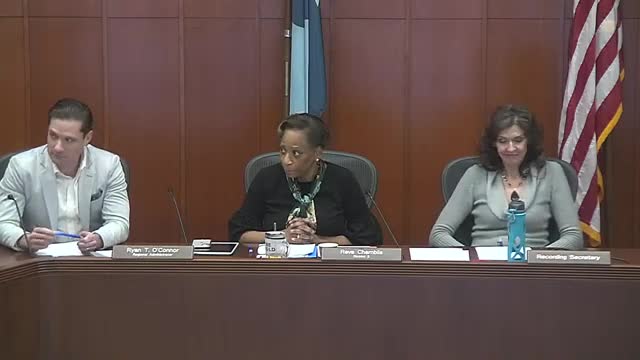Councilmember reports raise unsheltered homelessness, opioid disparities for Native residents; call for cross-jurisdictional response
Get AI-powered insights, summaries, and transcripts
Subscribe
Summary
Councilmember Lewin reported on a community meeting convened by Metropolitan Urban Indian Directors (MUD) that described disproportionately high unsheltered homelessness and opioid deaths among Native residents and urged regional leaders to collaborate on a new response model.
Councilmember Lewin reported on Jan. 8 that a community meeting convened by the Metropolitan Urban Indian Directors (MUD) highlighted sharply disproportionate rates of unsheltered homelessness and opioid deaths among Native people in the region and called for a collaborative response involving city, county, state and regional leaders.
Lewin said about 100 people attended the meeting, which included the mayor of Minneapolis, multiple city council members and agency officials. “A native person in our region is 33 times more likely to die of an opioid overdose than the broader population and 37 times more likely to live unsheltered,” Lewin said, attributing those statistics to the community discussion.
Lewin said MUD sent a forceful letter asking that city, state, county and regional officials meet to develop a different collaborative model because current efforts are not producing adequate results. He said the meeting’s participants urged leadership-level engagement and pledged to follow up; Lewin said he would be part of a follow-up strategy meeting the next day.
Why it matters: Lewin framed the issue as one that requires cross-jurisdictional leadership and resource coordination. He said local leaders told him they do not feel Native communities are a priority and that current approaches are too fragmented to move the needle.
Council members in the meeting acknowledged the complexity of homelessness responses — citing intersecting issues of mental health, addiction and housing supply — and said any regional approach must include community expertise and resource commitments from multiple jurisdictions. Lewin said the initiative at minimum will require leadership participation from the jurisdictions that control resources.
No formal council action was recorded on this report. Lewin said additional strategy meetings are planned and the community requested jurisdictional participation to shape a collaborative response.
